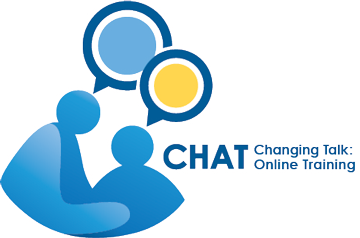Goal
The goal of this communication course is to increase awareness of the importance of effective communication with older adults and to use effective communication between staff and residents in nursing homes and other health care settings.
Intended Audience
The intended audience for this course is staff at nursing home facilities, independent and assistive living, and health care settings in the community that include registered nurses, nursing assistants, nursing home dieticians, direct care professionals, other administrations and support employees.
Length
The total program is approximately three hours and 15 minutes, split into three modules and the evaluation. Each module is approximately an hour, depending on the individual user. The evaluation is approximately 15 minutes. Upon completion of all three modules, the evaluation, and 70 percent on a posttest, a certificate of completion (three nursing contact hours) will be awarded.
Content
There are three modules in this course:
-
Module 1
- This course contains information on the importance, benefits, and components of effective communication.
-
Module 2
- This course contains information on some communication barriers and challenges, and effective and ineffective communication strategies.
-
Module 3
- This course contains information on common problems during communication, guidelines for improving communication, and some characteristics of affirming communication.
Learning Objectives
After completing the CHATO program, participants will:
1. Identify the importance of communication in nursing care of older adults.
2. Identify barriers to communication in care of older adults.
3. Distinguish effective and ineffective communication strategies.
4. Identify elderspeak and its negative effects.
5. Revise communication to reduce elderspeak and increase person-centered messages.
Module 1
Upon completion of this module, you will be able to:
- Recognize the importance of communication to older adults.
- Identify barriers to communication in care of older adults.
- Distinguish between effective and ineffective communication strategies.
Module 2
Upon completion of this module, you will be able to:
- Identify elderspeak and its potential negative messages.
- Contrast effective and ineffective communication strategies.
- Revise transcripts to reduce elderspeak and ineffective communication.
Module 3
Upon completion of this module, you will be able to:
- Identify affirming communication.
- Critique communication in video recordings of nursing home staff-resident communication.
- Rewrite transcripts to reduce elderspeak and ineffective communication.
The course content was presented by Dr. Kristine Williams (Dr. Williams’ Bio). There are learning activities, discussion forums, list of resources, posttest, and evaluations at the end of the course. The practice activities were designed to provide you with opportunities to apply the knowledge and skills presented in the course. Please take part in the discussion forum to share your experience and reflect on others.
| A Certificate of Completion is awarded on successful completion of this course. In order to successfully complete this course, you MUST: Score 70% or higher on the posttest. If you do not receive 70% on the posttest, you may review the material and re-take it. |
Approval Statement
This continuing nursing professional development activity was approved by the Midwest Multistate Division, an accredited approver by the American Nurses Credentialing Center's Commission on Accreditation.
Participant receives 3 contact hours for completing CHATO.
Acknowledgements
This work was supported by the National Institute of Nursing Research of the National Institutes of Health under Award Number R01NR011455, Changing Talk to Reduce Resistiveness to Dementia Care, K. Williams, PI. The content is solely the responsibility of the authors and does not necessarily represent the official views of the National Institutes of Health.
We appreciate the expertise of The University of Iowa College of Nursing, and the Midwestern Public Health Training Center, University of Iowa College of Public Health (MPHTC–UICPH) for their help in converting the CHAT content into an interactive online format.
Image/Video Credits:
- Thinkstock
- Lost for Words - Masterpiece Theater
- Elizabeth Layton for “The Motherless Child” artwork/drawings - permission granted from Center on Aging, University of Kansas Medical Center.
- Classroom teaching elderspeak cartoon by Tony Husband – permission granted from cartoons@tonyhusband.co.uk
Special Thanks to the Nursing Home residents and staff who participated in video recordings and to Ruth Herman and Mary Suggs who participated as actresses.
Conflict of Interest
The planners and presenters have no conflicts of interest to declare.

Midwest MSD Approval Number: KS523‐1376
Contact hours for this program will not be awarded after May 15, 2023

